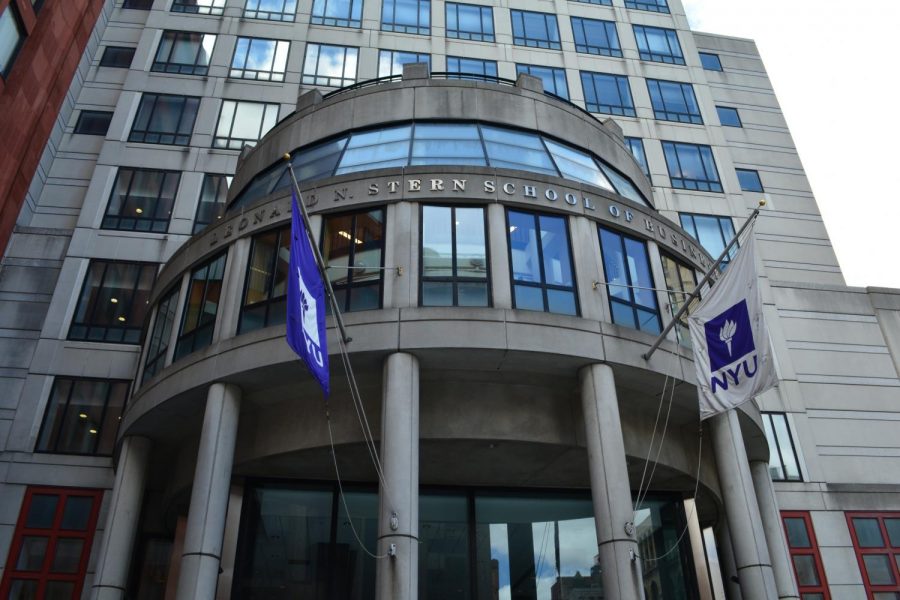NYU Stern’s MBA program received a STEM designation, increasing the program’s appeal for international students by allowing them to work in the U.S. for more time after graduation.
STEM groups science, technology, engineering and mathematics disciplines under one umbrella. The designation reflects Stern’s analytics- and technology-heavy curriculum, according to a press release. The full time, two year program is the second Stern MBA program to be dubbed STEM as of January 2nd.
“Many top MBA programs have announced STEM designations, although Stern is one of a select few to receive the designation for its entire program as opposed to a select track or concentration in the program,” JP Eggers, Stern’s Vice Dean for MBA Programs, told WSN in an email. “The fact is that STEM skills are a ubiquitous skill set today that help MBA students compete for jobs.”
But the designation does more than reflect a STEM-based curriculum — it also has important implications for international students. International student visas for non-STEM programs allow eligible students to apply for up to 12 months of optional practical training, or OPT, but international students in F-1 status studying for STEM degrees could potentially have up to three years in total of optional practical training. Professor Marti Subrahmanyam said this issue is particularly relevant for NYU.
“NYU has a larger proportion of foreign students than many of its peer schools,” Subrahmanyam said, “so this means that a significant portion of the Stern student body would be affected by the previously-short practical training period.”
In 2019, OPT was threatened when the Washington Alliance of Technology Workers sued the Department of Homeland Security, claiming it had overstepped its authority by using OPT to create a loophole for international workers in the U.S. without congressional approval. Subrahmanyam says that abolishment of OPT would be a major concern for NYU.
“For NYU this would be a disaster, because our whole model is based off foreign students,” Subrahmanyam said.
Over a hundred U.S. colleges, including NYU, challenged the suit in defense of OPT. The U.S. District Court ultimately ruled in favor of the program. NYU is able to capitalize off its global reputation to outcompete other U.S. universities for the brightest students internationally, according to Subrahmanyam.
“If someone got into an Ivy League school versus NYU, they may well go to an Ivy League, especially if they are from somewhere else in the United States,” Subrahmanyam said. “But with the foreign students we’ve got a bit of a better shot at getting that person.”
Originally from Greece, Stern sophomore Michail Angelos Pantouvakis studies in the U.S. on a visa and said that the STEM designation is an important development.
“It’s a major thing […] maybe I’ll do it,” Pantouvakis said. “After I graduate, I need to get sponsored by someone, by a company — otherwise I have to leave the U.S. If they make it a STEM program now that’s a whole lot better because I can stay longer, look for more opportunities after the extra two years of the MBA.”
Stern worked with the university for months to match its curriculum with the requirements for a STEM designation, according to Eggers.
“The Department of Education has a taxonomy and these guys are using that. Both the Department of Education and Department of Homeland Security, but the people who actually sign off on it are the immigration people,” Subrahmanyam said. “This is not an easy process. I suspect a lot of things get rejected. It’s not something you just apply for and get.”
Stern currently has five undergraduate programs and six graduate programs that fulfill this STEM designation for F-1 visa holders.
“You need to be able to do statistical work, data science work, computer work, all this kind of stuff,” Subrahmanyam said. “You really need those skills, otherwise you really can’t get a good position.”
Correction, Feb. 10: This article previously misstated information about visa logistics for STEM students. This article has been updated to reflect this information and WSN regrets the error.
A version of this article appeared in the Monday, February 10, 2020, print edition. Email Emily Mason at [email protected].























































































































































